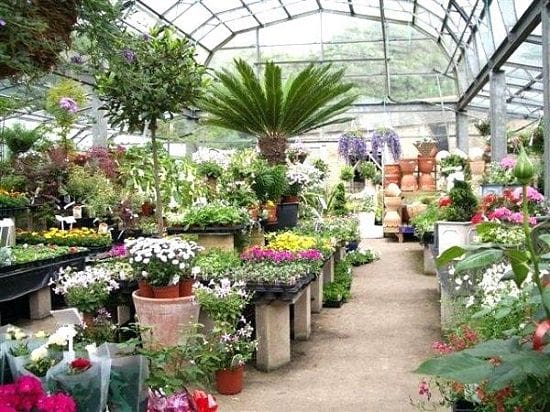The beauty of cultivating your own garden is that you may create a sort of first aid kit that can be useful for healing minor ailments. Medicinal plants have been used to heal many ailments for thousands of years, and having them on your own terrace can save you a great deal of time and effort when you need a rapid remedy. Here are some valuable medicinal plants that can be grown in a terrace garden at home. If you want to get the plant for your balcony or garden then it’s always recommended to reach out to the providers of Outdoor plants in Noida.
6 Medicinal Plan to Use in Balcony or in Garden
1. Aloe Vera
Aloe Vera is a succulent plant used to treat burns, cuts, and wounds with its sap. Cut off a fleshy portion of the plant and apply it to the injured area to promote rapid healing. Aloe Vera is also utilized in the treatment of eczema, irritation, and headaches.
Some research suggest that consuming Aloe Vera juice helps relieve digestive issues and constipation and stimulate appetite. However, its application should be approached with caution. Aloe Vera can be cultivated in tiny containers of sandy soil in full sunlight. Here you may learn more about growing Aloe vera plants. If you looking get the Aloe vera plant for your balcony or garden then it’s always recommended to reach out to the plant nursery in Delhi NCR.
2. Mint
Mint is rich in Vitamin A, Vitamin C, and manganese, making it an excellent addition to a terrace garden. You can make a paste of the leaves and apply it to tight muscles to soothe them, as well as a tea decoction to relieve flatulence or an upset stomach. You can learn more about how to produce mint and other plants that require less work to cultivate on this page. If you want to get the Mint plant for your balcony or garden then it’s always recommended to reach out to the Noida plant nursery
3. Tulsi
Tulsi is a cherished plant in nearly every Hindu home in India. It is a somewhat difficult plant to maintain, but its therapeutic benefits make the extra effort worthwhile. The plant reproduces rapidly from seeds and does not require direct sunshine for growth. Simply provide Tulsi with well-drained soil and a warm, protected location, and it will thrive robustly. If you are feeling unusually fatigued, need an immune system boost, or feel a cold coming on, steep a few leaves in warm water and drink it. This post contains information about growing Tulsi plants.
4. Curry Herbs
Curry leaf has numerous health benefits, including improved digestion, prevention of anemia, aid in the battle against diabetes, and prevention of greying hair. They are simple to cultivate in a terrace garden. For healthy growth, place young plants in moderate shade and fertilize them once per month. Here you can learn more about how to cultivate curry leaves. If you want to get the Curry leaves for your balcony or garden then it’s always recommended to reach out to the best plant nursery in Delhi NCR.
5. Chamomile
Flowers of chamomile have the potential to alleviate muscle spasms naturally. These plants are simple to cultivate and require little maintenance. Add hot water to fresh or dried chamomile flowers in a cup, then allow the mixture to cool. Apply this liquid on your skin. How to cultivate and care for chamomile – This plant may be cultivated indoors and only needs three to four hours of daily sunlight.
For good plant growth, the potting soil must be moist and have adequate drainage. In addition, while chamomile does not typically attract pests, you should keep a look out for common insects such as mealybugs. For optimal results, fertilise the plant once a month.
6. Lemon Grass
Herb that grows in tropical climates is lemongrass. Its natural habitats are India and Sri Lanka. It was brought to Florida by Dr. John Witherspoon in 1857. He returned from his trip in India with seeds, which he planted near his home. They flourished, and he began to sell them at local farmers’ markets. Both the leaves and the oil are utilised for medicinal purposes. It is used to treat digestive system spasms, gastric ulcers, high blood pressure, constipation, diarrhea, flatulence, heartburn, dyspepsia, indigestion, nausea, vomiting, nervousness, rheumatic pains, sore throat, and toothaches. Additionally, the oil is used to destroy bacteria and as a mild astringent. Tea made from lemongrass reduces menstrual and stomach pain. It provides a calming and sedative effect.
Two types of lemongrass exist. One variety is known as “wild” lemongrass, while the other is known as “domestic” lemongrass. Wild lemongrass grows naturally throughout Asia. Commercial cultivation of domesticated lemongrass occurs in Indonesia, Malaysia, Thailand, Singapore, Australia, New Zealand, and Hawaii.
7. Coriander
The herb that gives a touch of freshness to Indian recipes is simple to cultivate in a terrace garden. Simply distribute a handful of crushed coriander seeds over a container and lightly cover with dirt. Consistently water the soil until the seeds germinate, which should occur quickly. There are numerous health benefits of coriander, some of which are given here. If you want to get the Coriander plant for your balcony or garden then it’s always recommended to reach out to the wholesale plant nursery in Noida.
